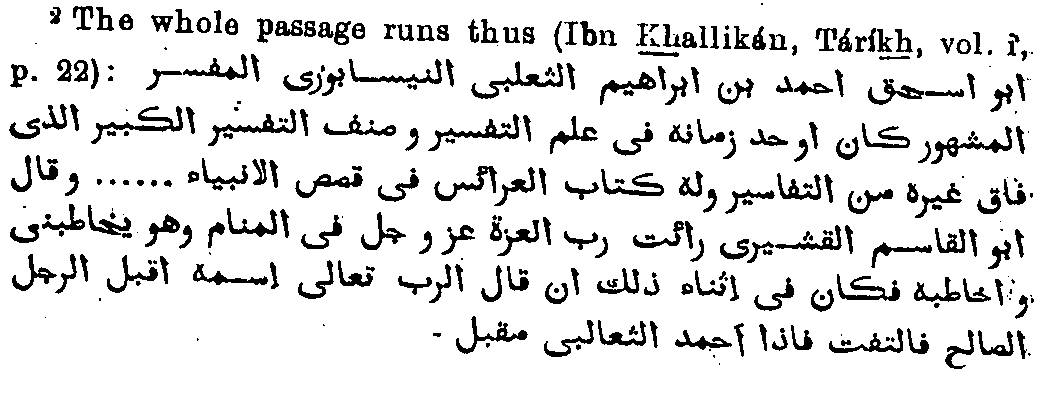2 R.T.S., London, 1910.
3 S. P.O.K., London, 1904.
4 American Mission Press, Cairo, A.D. 1900. This book refutes
the arguments of 'As-Saifu'l-Hamidyyu's-Saqil'.
5 Suratu'n-Ni'sa' (iv) 51, 116.
6 'The Divine Origin of the Holy Qur'an,' p.7.
7 Suratu Ali 'Imran (iii) 78; Si'ratu'l-Baqara (ii) l30.
8
9 See Suratu'1-Mai'ida (v) 48-52; Su' ritu Ali 'Imran (iii) 75;
Suratu'1-Baqara (ii) 85; Suratu'n-Nisa' (iv) 50.
10 'This is given in the Kashfu'z-Zunún'
11 1 Cp. also Deut. xix. 21.
12 'The Divine Origin of the Holy Qur'an', pp. 23-4.
13
14
15 In proof of this, the Maulavi might have adduced, but does
not Baidawi's quotation in his note on Suratu Yunas (x) 94:
16 p. 59.
17 Siratu'r-Rasul, vol. i., pp. 76-7.
18 pp. 64-5.
19 p.52.
20 Suratu'l-Baqara, (ii) 138-40.
21 'Sahih', vol. iv, p. 99; Edition of AH. 1268 to 1270, Bombay.
22
23 pp. 69-72.
24 p. 78.
25 p. 108.
26 pp. 276-80 of the English Edition.
27 Some hold, however, that S'iratu'l-Baqara (ii) 19-37,
were composed at Mecca.
28 Baidawi notes that Hamza and Al-Kasa'i here read
![]()
![]() , Constantinople edition of A.H. 1310, vol. ii, pp. 340-l.
, Constantinople edition of A.H. 1310, vol. ii, pp. 340-l.


![]()

![]() for the usual
for the usual ![]() .
.